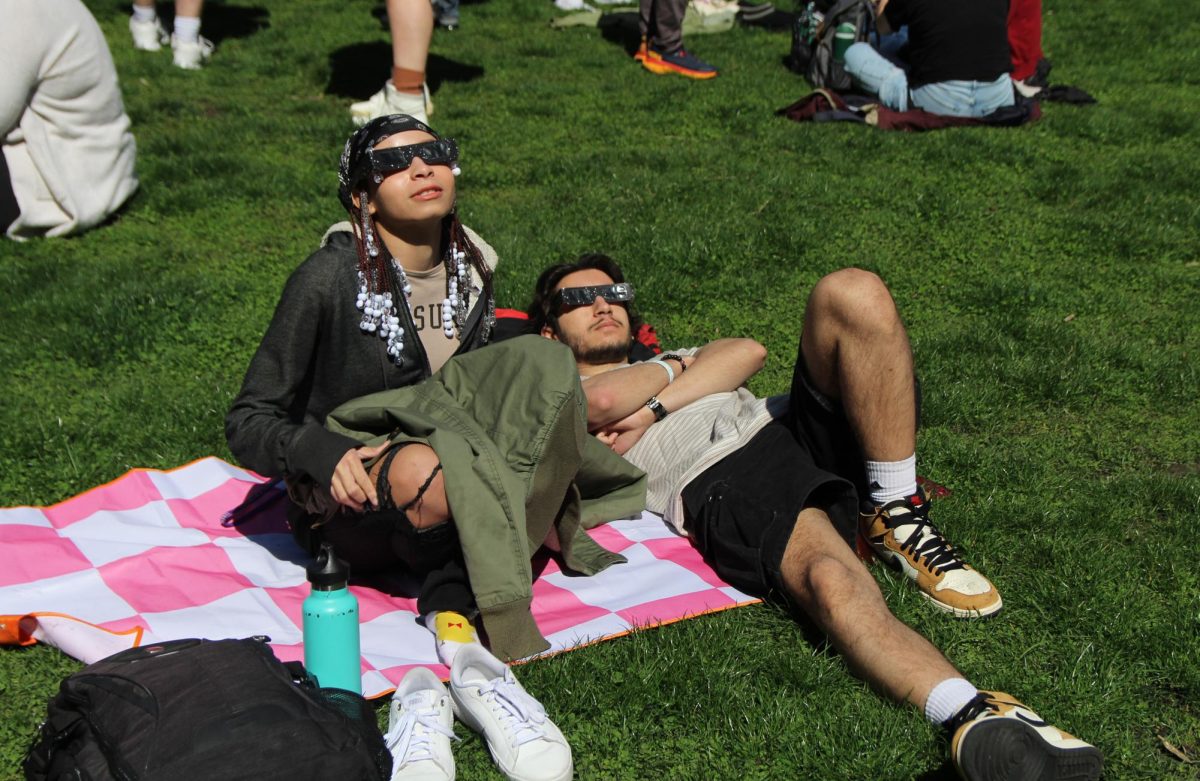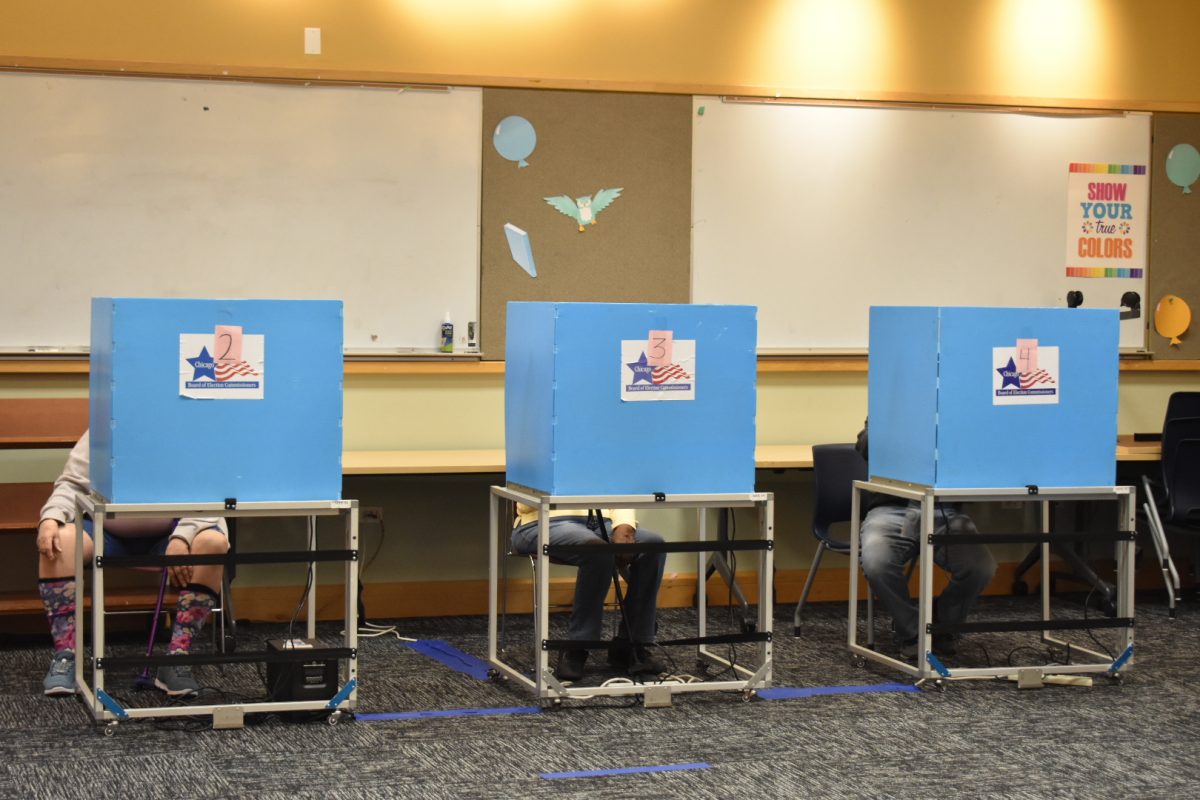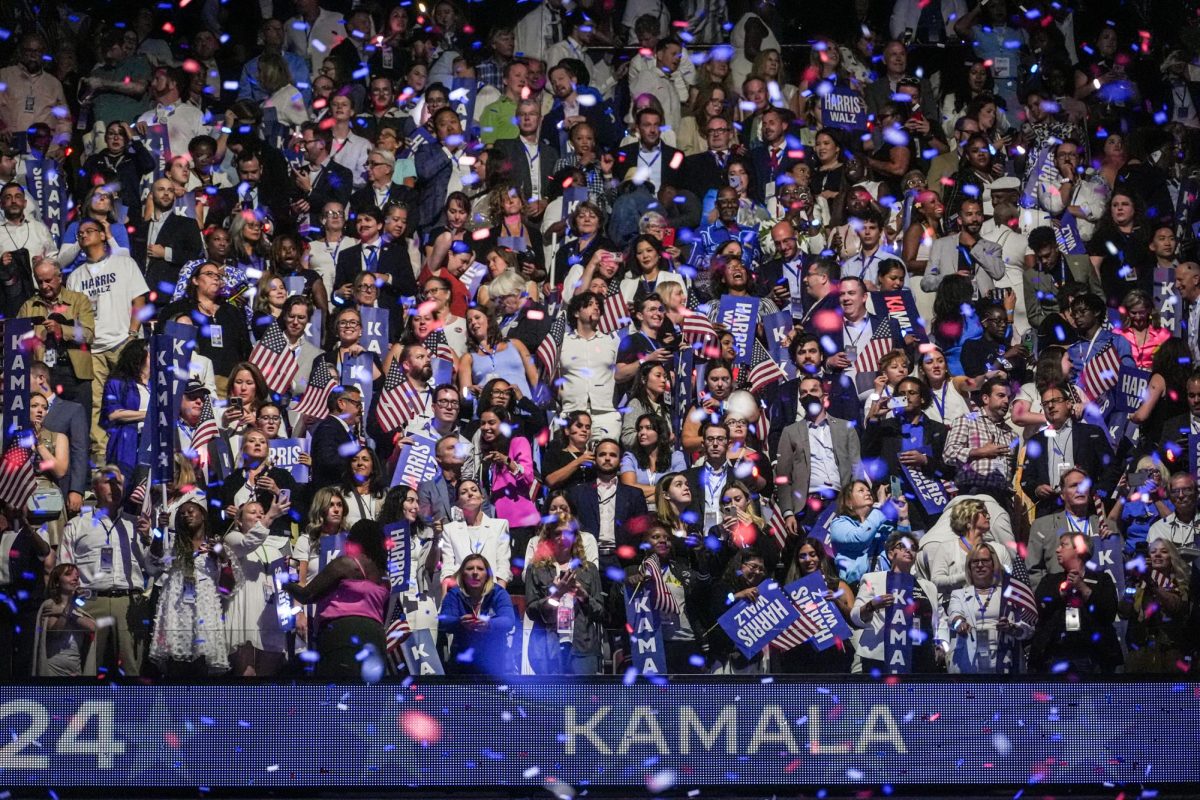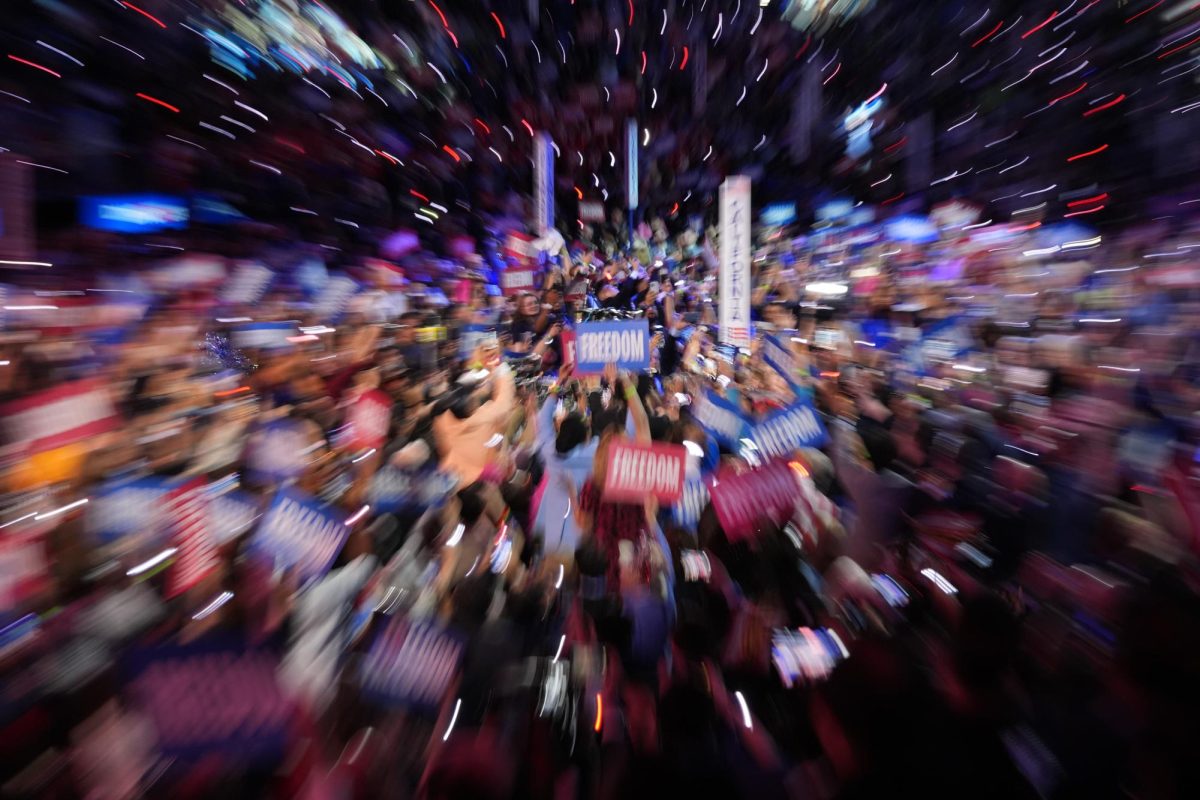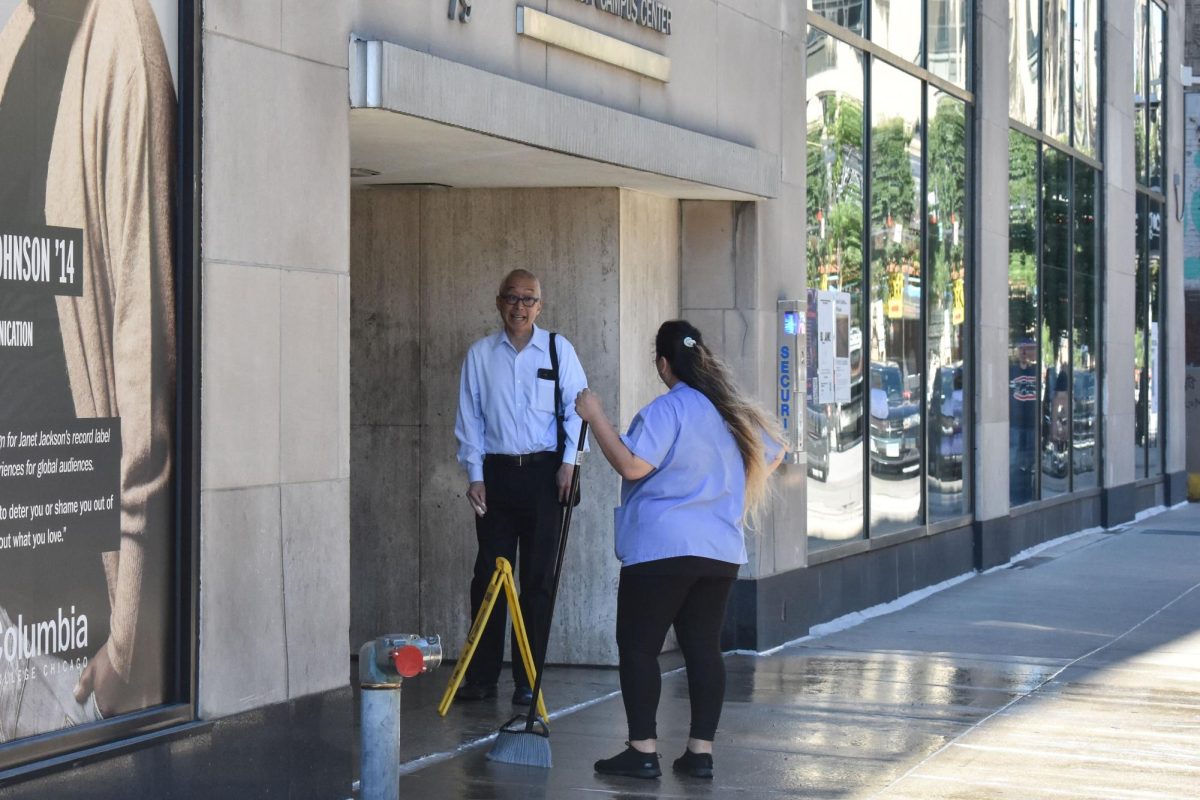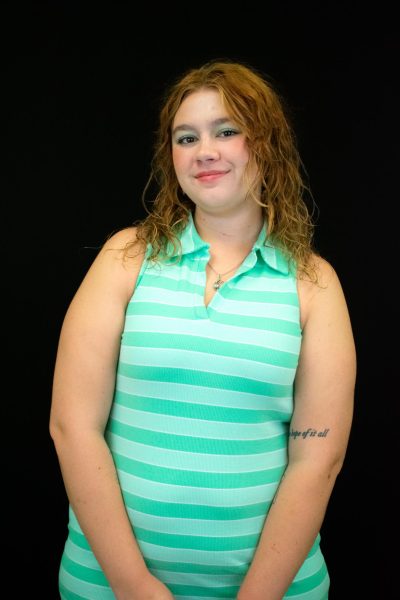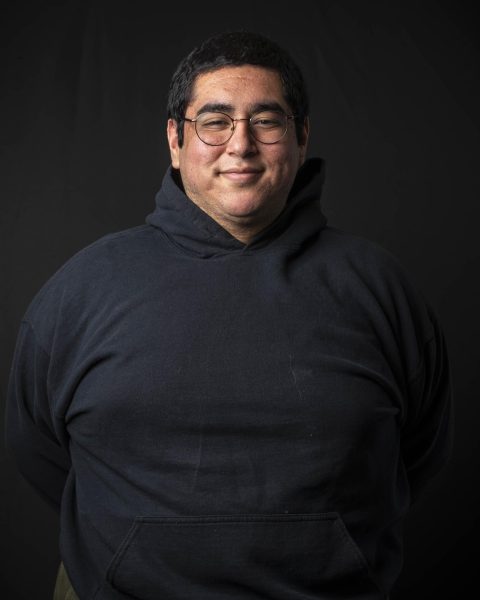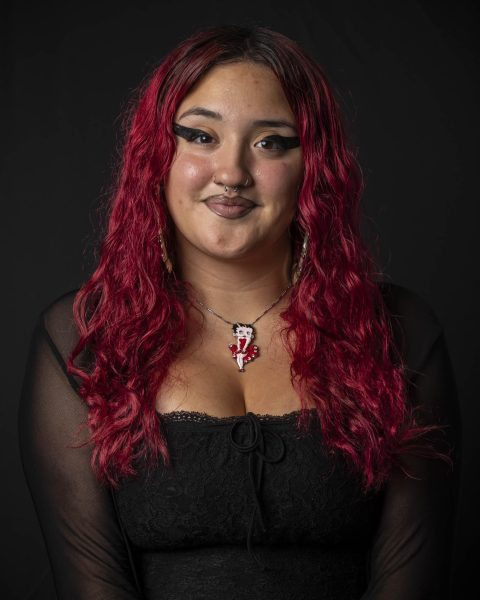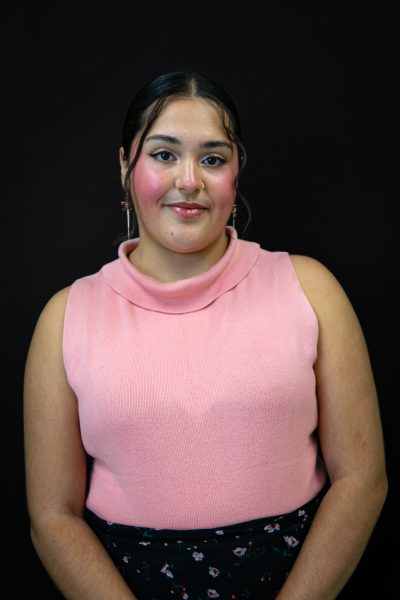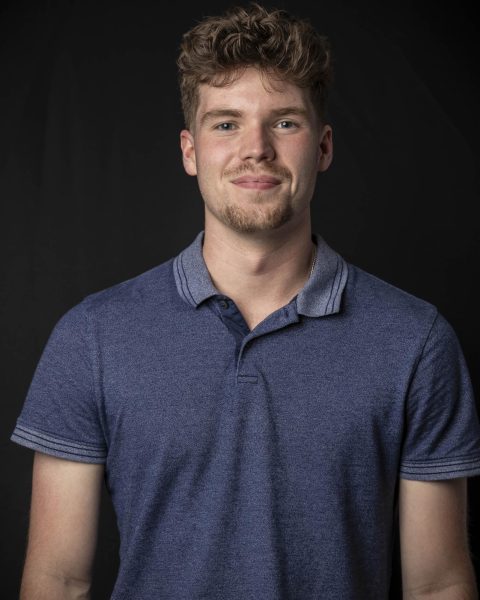Under nearly cloudless skies, members of the Columbia community watched from Grant Park on Monday, April 8, as the moon passed by the sun during a partial eclipse that created odd shadows downtown and an unexpected breeze at 2:07 p.m, the moment when the eclipse was at its peak of 93.9%.
The total eclipse, which crossed North America over Mexico, the United States and Canada, occurred further south of Chicago.
The last solar eclipse was in 2017, though it traveled on a smaller path than what is predicted for the 2024 eclipse. According to NASA, this year’s totality lasted longer.
“It’s a once in a lifetime because it’s covering like the entire sunlight so might as well come and share glasses with people,” said Seng Xiong, a sophomore marketing major.
Xiong was among the hundreds of students, faculty and staff who assembled in Grant Park across from the 618 and 624 S. Michigan Avenue buildings for a viewing party hosted by the Chronicle and the Department of Science and Mathematics.
Several administrators also were at the park to see the eclipse, including Senior Associate Provost Nathan Bakkum, Steven Corey, dean of the School of Liberal Arts and Sciences and Robin Whatley, associate dean of LAS.
People shared special viewing glasses that protected their eyes from the bright sun, which can be damaging even when covered by the moon.
Elizabeth Davis-Berg, professor of biology and the chair of the Science and Math Department, brought homemade pinhole viewers, which allows you to see the shadow of the eclipse. They were made out of old packing boxes and cardboard food containers. People passed around one made from a recognizable blue and yellow Kraft macaroni and cheese box.
“This is the closest to totality Chicago is going to see for close to 70 years; therefore, it’s probably the last time all of us can really see without traveling very far,” Davis-Berg said.
According to Davis-Berg, they had about 45 glasses, which were gone in an “instant.” Davis-Berg showed those who attended the event how to use the pinhole viewers.
Many stores in the Chicago area and the public libraries also were out of glasses by Monday morning, making them precious commodities.
“I think it’s really fun,” Davis-Berg said. “I’m really glad to see everyone learning a little about science and getting to see fun visual techniques to see the sun without destroying your eyes.”
For about an hour, students and faculty mingled on the grassy lawn of the park and sidewalks. Some students climbed trees for a better view of the sun which was high over the office and apartment buildings.
Although it never got completely dark or even close to the dim light at dusk, the sky did darken, creating shadows. A breeze also picked up.
Sophomore and film major Jaida Raygor went to Cleveland to see the eclipse.
“I’m so excited,” Raygor said. “In 2017, I saw a partial one, and it was so cool, so I’m excited to see a full one, it’s like a once in a lifetime thing.”


